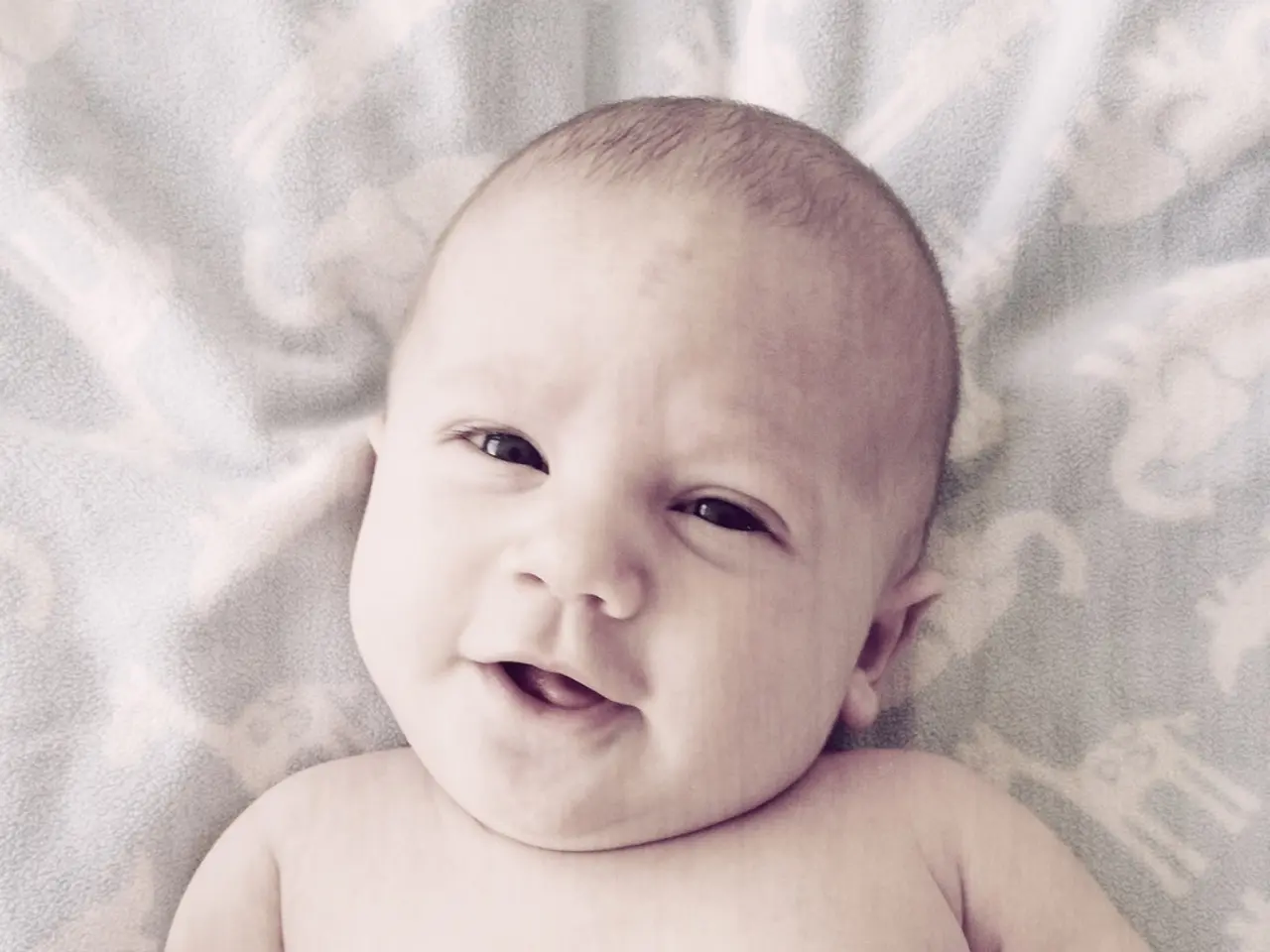Developmental Milestones for Infants: Key Signs to Observe
Babies experience a remarkable journey of growth and development in their first year, with milestones spanning across physical, cognitive, social and emotional, and communication domains. Here's a closer look at these milestones and the strategies parents can use to support their baby's development.
Physical Milestones
In the first month, babies can briefly hold their head up when prone, make jerky arm thrusts, and bring hands close to eyes and mouth. By the time they are 10 months old, babies are exploring their surroundings through improved mobility, often crawling and beginning to stand with support. Near their first birthday, many babies take their first steps and can walk with push toys or in safe, open spaces.
Cognitive Milestones
Cognitive development in babies involves following faces, showing interest in high-contrast patterns, developing object permanence, and early problem-solving through manipulation of objects. By 10 months, babies actively search for hidden objects, showing an understanding that things exist even when out of sight. Around 1 year, simple words might emerge, and caregivers are encouraged to name objects and respond to babbling to foster language development.
Social and Emotional Milestones
Recognizing parents' voices and responding to comforting, showing excitement or joy upon seeing familiar faces, and displaying empathy and understanding the feelings of others are all part of a baby's social and emotional development. Around 10 months, babies show separation anxiety due to attachment, clearly express emotions like happiness and frustration, and enjoy interactive games like peek-a-boo. At 1 year, babies exhibit growing independence but still rely on caregiver support and enjoy responsive interactions.
Communication Milestones
At 1 month, babies start making noises beyond crying and respond to loud sounds. By 10 months, babies babble and respond to their name, engaging more deliberately with sounds and music. At 1 year, simple words might emerge, and caregivers are encouraged to name objects and respond to babbling to foster language development.
Parental Support Strategies
Encouraging tummy time to strengthen neck and shoulder muscles, using expressive facial expressions, singing, talking, reading, and making eye contact to build communication and bonding, providing age-appropriate toys that promote newly emerging skills, supporting safe exploration and play, and comforting and responding sensitively to the baby’s emotional cues are all effective strategies for supporting a baby's development.
Individual variation is normal, and parents should not be overly concerned if their baby's milestones do not align perfectly with the averages. However, for any developmental concerns, consulting a pediatrician is recommended to ensure timely support.
Some additional milestones to look out for include babies around 3 to 6 months exhibiting excitement or joy upon seeing familiar faces, babies around 6-8 months experiencing separation anxiety when away from their primary caregivers, babies between 12 to 18 months expanding their vocabulary and starting to understand more words and simple phrases, and babies around 6 months entering the babbling stage, producing repetitive consonant and vowel sounds.
Babies may also initiate games, inviting others to join in the fun, and by around six months, babies typically start recognizing and responding to their names. As babies grow older, they start to develop empathy and understand the emotions of others, making for a truly fascinating journey of growth and development.
- Enhancing safety is crucial during tummy time, a method to strengthen a baby's neck and shoulder muscles, promoting physical development.
- Encouraging learning at an early age involves responding to a baby's babbling and naming objects to foster language development.
- Building social skills can be achieved by engaging in interactive games like peek-a-boo around 10 months, developing separation anxiety and emotional understanding.
- Parents can support cognitive development by providing age-appropriate toys that help babies manipulate objects for problem-solving.
- Health and wellness are integral to a baby's development; parents should consult a pediatrician for any developmental concerns.
- Parents can use expressive facial expressions, singing, talking, and making eye contact to build communication and bonding with their babies.
- As kids grow older, they will start recognizing their names, develop empathy, and expand their vocabulary, making for a fascinating journey of growth and development in the family lifestyle and health-and-wellness arena.




